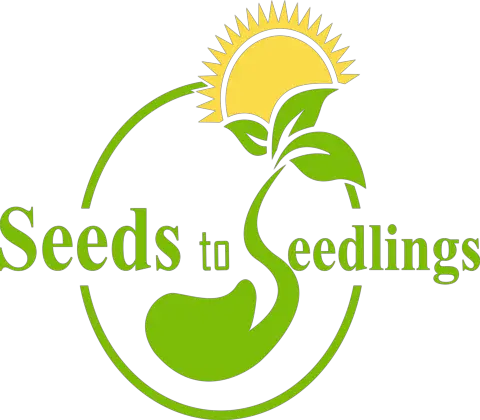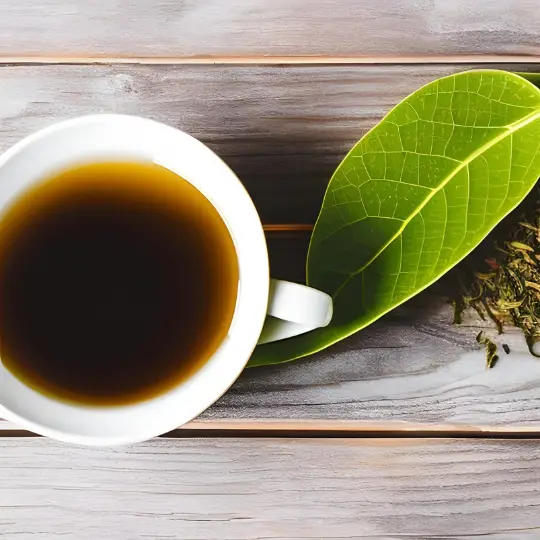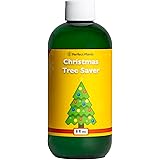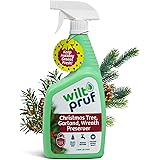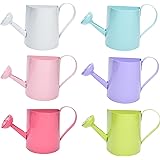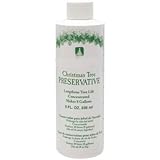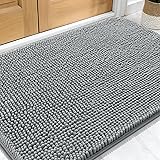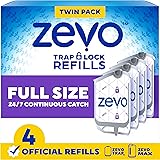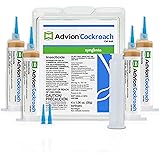Tea lovers, rejoice! You may have wondered if your favorite beverage, tea, is good for plants. Well, the answer is a resounding yes! Not only does tea provide a much-needed hydration boost to your leafy companions, but it also offers a host of other benefits that can help your plants thrive.
From enriching the soil with essential nutrients to protecting against certain pests and diseases, tea can be a secret weapon in your gardening arsenal. So, if you’re looking to give your plants a natural and nourishing boost, look no further than your teapot. Let’s delve into the fascinating world of tea and its impact on plant growth.
Is Tea Good for Plants?
Tea is a popular beverage enjoyed by millions of people around the world, but did you know that it can also benefit your plants? That’s right!
Tea, whether it’s black, green, or herbal, can be used as a natural and eco-friendly fertilizer for your beloved plants.
In this article, we will explore the various ways in which tea can be beneficial for both indoor and outdoor plants. So, grab a cup of tea and let’s dive in!
The Nutritional Benefits of Tea for Plants
Tea contains several nutrients that can nourish your plants and promote their overall growth and health. Here are some of the key nutrients found in tea:
- Nitrogen (N): Nitrogen is essential for plant growth and development. It plays a crucial role in leaf and stem production, as well as overall plant vigor. Tea leaves, especially green tea, contain a significant amount of nitrogen, which can be beneficial for plants.
- Potassium (K): Potassium is vital for plants’ ability to withstand stress, regulate water movement, and support fruit and flower development. Tea leaves, particularly those from black tea, are rich in potassium, making it a valuable nutrient source for plants.
- Phosphorus (P): Phosphorus is essential for strong root development, energy transfer, and overall plant growth. While tea does not contain high levels of phosphorus, it still contributes to the overall nutrient profile that benefits plants.
- Trace Minerals: Tea leaves also contain trace minerals like magnesium, calcium, and iron, which are all vital for plant health.
Using Tea Bags as Fertilizer
One of the easiest ways to utilize tea for your plants is by using tea bags as a natural fertilizer. Here’s how you can do it:
- Collect used tea bags from your daily tea consumption, making sure they are made from natural materials and do not contain any plastic or synthetic components.
- Remove any tags, staples, or strings from the tea bags, as they can be harmful to plants.
- Allow the used tea bags to dry out completely.
- Once dried, simply tear open the tea bags and sprinkle the tea leaves around the base of your plants.
- Gently mix the tea leaves into the soil using a garden fork or your hands.
- Water the plants as usual, allowing the tea to seep into the soil and provide nutrients to the roots.
This method is particularly beneficial for indoor plants or plants in containers, as it helps replenish nutrients that may have been depleted over time. Additionally, the natural fibers from the tea bags can improve soil structure and water retention, creating a more favorable environment for plant growth.
Making Tea Fertilizer
If you prefer a more concentrated form of tea fertilizer or have larger outdoor garden beds to tend to, you can also make your own tea fertilizer using fresh or dried tea leaves. Here’s a simple recipe to get you started:
- Choose your preferred type of tea leaves, such as green, black, or herbal tea. Organic options are recommended to avoid introducing any harmful chemicals to your plants.
- Steep a large quantity of tea leaves in water, just like you would when making a cup of tea for yourself. The amount of water will depend on the quantity of fertilizer you wish to make.
- Allow the tea mixture to steep for several hours or overnight, ensuring that the water absorbs the nutrients from the tea leaves.
- Strain the tea leaves from the liquid, collecting the infused tea water in a container.
- Dilute the tea water with additional water, aiming for a ratio of approximately 1:4 (tea water to plain water).
- Using a watering can or spray bottle, apply the diluted tea fertilizer to the soil around your plants, avoiding direct contact with the leaves.
Remember to only use the tea fertilizer once every few weeks to avoid over-fertilization, which can harm your plants. This homemade tea fertilizer provides a boost of nutrients to your plants, encouraging healthy growth and vibrant blooms.
The Benefits of Using Tea for Plants
Using tea as a natural fertilizer offers numerous benefits for your plants and the environment. Here are some of the advantages:
- Organic and Chemical-Free: Tea is a natural and eco-friendly alternative to synthetic fertilizers, as it does not introduce harmful chemicals into your garden or potting soil.
- Cost-Effective: Tea is readily available and affordable, making it an accessible plant fertilizer option for gardeners on a budget.
- Improves Soil Quality: Tea leaves help improve soil structure, water retention, and nutrient availability, creating a healthy and fertile environment for your plants.
- Encourages Beneficial Microorganisms: The organic matter in tea encourages the growth of beneficial microorganisms in the soil, promoting a balanced ecosystem and enhancing nutrient cycling.
- Reduces Waste: Repurposing used tea bags or tea leaves as fertilizer reduces waste and allows you to contribute to a more sustainable lifestyle.
Tea for Specific Plant Types
While tea can generally benefit most plants, certain varieties may respond particularly well to tea fertilization. Here are a few examples:
- Roses: Tea leaves, especially black tea, can provide roses with the necessary nutrients for healthy growth and abundant blooms.
- Acid-Loving Plants: Plants like azaleas, camellias, and blueberries thrive in acidic soil. Using brewed tea, such as green tea or herbal tea, can help lower the pH level of the soil.
- Herbs: Many herbs, such as mint, basil, and parsley, benefit from the nitrogen-rich content of tea leaves, promoting lush foliage and enhancing flavor.
- Houseplants: Tea fertilizer is an excellent option for nourishing indoor houseplants, as it provides a gentle and balanced nutrient supply.
In conclusion, tea can indeed be beneficial for your plants. Whether you choose to repurpose used tea bags or create your own tea fertilizer, incorporating tea into your plant care routine can provide numerous nutritional benefits and promote lush, healthy growth. So, the next time you enjoy a cup of tea, don’t forget to share some love with your plants too!
Remember to approach tea fertilization in moderation and observe your plants’ responses. Each plant is unique, and factors like sunlight, water, and overall care also influence their well-being. Enjoy experimenting with tea as a natural fertilizer and watch your plants thrive!
Frequently Asked Questions (FAQs)
Yes, tea can be beneficial for plants when used as a fertilizer. It provides nutrients like nitrogen, potassium, and phosphorus, which are essential for their growth.
Both brewed and leftover tea can be used on plants. Brewed tea is more diluted and provides nutrients, while leftover tea can help in adding acidity to the soil.
Yes, tea leaves can be directly used as a plant fertilizer. They can be added to the soil as a mulch or composted to release their nutrients gradually.
Yes, using tea as a plant fertilizer can slightly change the pH of the soil. Some teas, like black tea, can lower the soil’s pH, making it more acidic.
Various types of tea, such as green tea, herbal tea, and compost tea, can be beneficial for plants. Each type has its own set of nutrients that can enrich the soil.
Some types of tea, like chamomile tea, have natural insect-repelling properties and can help in preventing pests in plants. However, it may vary depending on the specific pests.
The frequency of using tea as a plant fertilizer depends on the type of tea and the specific needs of your plants. It is generally recommended to use it once every two to four weeks.
While tea is generally beneficial for most plants, some sensitive ones, like orchids, may not respond well to tea fertilization. It’s always best to research specific plant requirements before using tea as a fertilizer.
Final Thoughts
Tea can be beneficial for plants in various ways. Firstly, it acts as a natural fertilizer, providing essential nutrients like nitrogen, phosphorus, and potassium. These nutrients promote healthy growth and development. Additionally, tea can enhance soil structure, improving its water-holding capacity and aeration. This helps plants to absorb water and nutrients efficiently.
Moreover, tea can act as a natural deterrent against pests and diseases, thanks to its antimicrobial properties. So, if you are wondering, “Is tea good for plants?” the answer is a resounding yes. Incorporating tea into your gardening routine can contribute to the overall health and vitality of your plants.
Auto Amazon Links: No products found.
Perfect Plants Christmas Tree Saver 8oz. | Easy Use Xmas Tree Preserver Food | Have Healthy Green Christmas Trees All Holiday Season
$16.99 (as of February 11, 2026 00:40 GMT +00:00 - More info- Product prices and availability are accurate as of the date/time indicated and are subject to change. Any price and availability information displayed on [relevant Amazon Site(s), as applicable] at the time of purchase will apply to the purchase of this product.
VEVOR Tree Watering Bags Slow Release, 4 Pack 16 Gallons Tree Watering Ring, Reusable Refillable Tree Irrigation Ring Water Bags, Heavy Duty Watering System for Shrub Tree Root Drip Irrigation
$29.99 (as of February 11, 2026 00:40 GMT +00:00 - More info- Product prices and availability are accurate as of the date/time indicated and are subject to change. Any price and availability information displayed on [relevant Amazon Site(s), as applicable] at the time of purchase will apply to the purchase of this product.
Wilt-Pruf® Christmas Tree/Cutting Preserver Spray |Preserves Christmas Trees, Wreaths, Garlands, Cuttings and Carved Pumpkins | Reduces Needle Drop | Keeps Cut Trees Fresh Longer | Natural (32 oz)
$21.99 (as of February 11, 2026 00:40 GMT +00:00 - More info- Product prices and availability are accurate as of the date/time indicated and are subject to change. Any price and availability information displayed on [relevant Amazon Site(s), as applicable] at the time of purchase will apply to the purchase of this product.
Mini Decorative Metal Watering Can, Set of 6, Height 1.97 inch, Cute Metal Jug for Hand Crafts,Garden Theme Parties, Home and Refrigerator Decor
$8.99 (as of February 11, 2026 00:40 GMT +00:00 - More info- Product prices and availability are accurate as of the date/time indicated and are subject to change. Any price and availability information displayed on [relevant Amazon Site(s), as applicable] at the time of purchase will apply to the purchase of this product.
Rocky Mountain Goods Christmas Tree Food - 8 oz Tree Preservative - Reduce Needle Drop - Greener Scent - Fir, Pine, Spruce Trees - Extend Tree Life
$9.95 (as of February 11, 2026 00:40 GMT +00:00 - More info- Product prices and availability are accurate as of the date/time indicated and are subject to change. Any price and availability information displayed on [relevant Amazon Site(s), as applicable] at the time of purchase will apply to the purchase of this product.
TERRO Ant Killer Bait Stations T300B - Liquid Bait to Eliminate Ants - Bait System - 12 Count Stations for Effective Indoor Ant Control
$11.97 (as of February 10, 2026 22:06 GMT +00:00 - More info- Product prices and availability are accurate as of the date/time indicated and are subject to change. Any price and availability information displayed on [relevant Amazon Site(s), as applicable] at the time of purchase will apply to the purchase of this product.
Wagner's 53002 Farmer's Delight Wild Bird Food with Cherry Flavor, 10-Pound Bag
$12.48 (as of February 10, 2026 22:06 GMT +00:00 - More info- Product prices and availability are accurate as of the date/time indicated and are subject to change. Any price and availability information displayed on [relevant Amazon Site(s), as applicable] at the time of purchase will apply to the purchase of this product.
OLANLY Dog Door Mat for Muddy Paws 30x20, Absorbs Moisture and Dirt, Absorbent Non-Slip Washable Doormat, Quick Dry Chenille Mud Mat for Dogs, Entry Indoor Entryway Carpet for Inside Floor, Grey
$9.49 (as of February 10, 2026 22:06 GMT +00:00 - More info- Product prices and availability are accurate as of the date/time indicated and are subject to change. Any price and availability information displayed on [relevant Amazon Site(s), as applicable] at the time of purchase will apply to the purchase of this product.
Zevo Flying Insect Trap Official Refill Cartridges - Fits Both Zevo Trap & MAX Indoor Fly Trap - Authentic Trap+Lock Technology to Catch Gnats, House & Fruit Flies (4 Official Refill Cartridges)
$14.97 (as of February 10, 2026 22:06 GMT +00:00 - More info- Product prices and availability are accurate as of the date/time indicated and are subject to change. Any price and availability information displayed on [relevant Amazon Site(s), as applicable] at the time of purchase will apply to the purchase of this product.
Advion Cockroach Gel Bait, 4 Tubes x 30-Grams, 1 Plunger and 2 Tips, German Roach Insect Pest Control, Indoor and Outdoor Use, Roach Killer Gel for American, German and Other Major Cockroach Species
$25.62 (as of February 10, 2026 22:06 GMT +00:00 - More info- Product prices and availability are accurate as of the date/time indicated and are subject to change. Any price and availability information displayed on [relevant Amazon Site(s), as applicable] at the time of purchase will apply to the purchase of this product.
